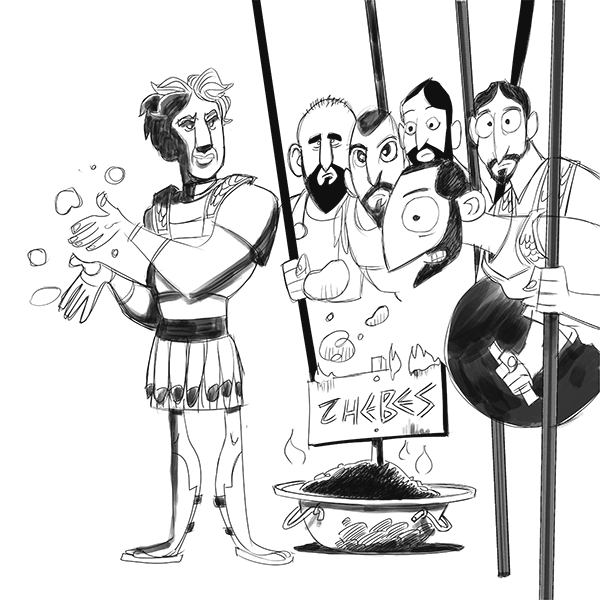When the words “the Great” follow your name, chances are you’re a pretty big deal. Several people throughout ancient history have earned this nickname, but perhaps the most famous is Alexander of Macedon.
But what makes Alexander so “great?”
Well, besides being undefeated in battle and creating one of the world’s largest empires, Alexander of Macedon also completely reshaped the ancient Mediterranean and west Asian worlds.
In a period of just 13 years, he brought massive empires and powerful cultures to their knees, ushering in a completely new era of history, not only in Greece but also in the entire ancient world.
How’s that for “great!?”

The Kingdom of Macedon
Macedon was a kingdom in Northern Greece that for most of the Classical Era (c. 600 – c. 300 BC) didn’t make much noise. Compared to cities such as Athens, Sparta, Thebes, and Corinth, it had relatively little influence within the Greek world. And when the Persians came knocking in 490 BC, Macedon surrendered, becoming part of the Persian empire for several decades.
Macedon was also different from the other Greek city-states in that it operated as a pure monarchy. This meant that the king was the one ruler who had absolute control over the state. There was little to no democracy present.
For the commoners, this was bad news, for it meant they didn’t have a lot of say in the affairs of the government. But for those with power, such an arrangement allowed them to do things that other Greek city-states couldn’t do, such as direct all of the city’s resources into creating a massive army.
Technically, Sparta did have this type of focus, but it placed strict requirements on who could serve in the military, which limited its size and influence.
However, for most of its history, the Macedonian kings didn’t look much further than their own borders, and when they did, they saw Persia, which was big, powerful, and kind of scary.
In 359 BC, though, all that would change.

The Rise of Philip the II
When Philip II became king of Macedon, he took power with a plan: unify Greece and defeat Persia.
For centuries, the Persians had been thorns in the sides of the Greeks. Between the Greco-Persian Wars, which brought death and destruction to Greece, as well as the Persian dominance of Greek cities throughout Ionia (the southwestern coast of modern-Turkey), there was a lot of anti-Persian sentiment in ancient Greece.
However, because the Greeks couldn’t get along themselves, all they could ever do was defend themselves from the Persians. The threat always loomed.
So, when Philipp II took the throne, he hatched a plan to defeat the Persians once and for all. But to do this, he needed the rest of Greece on his side. But no one was really interested in his plan, so he decided to make it happen by force.
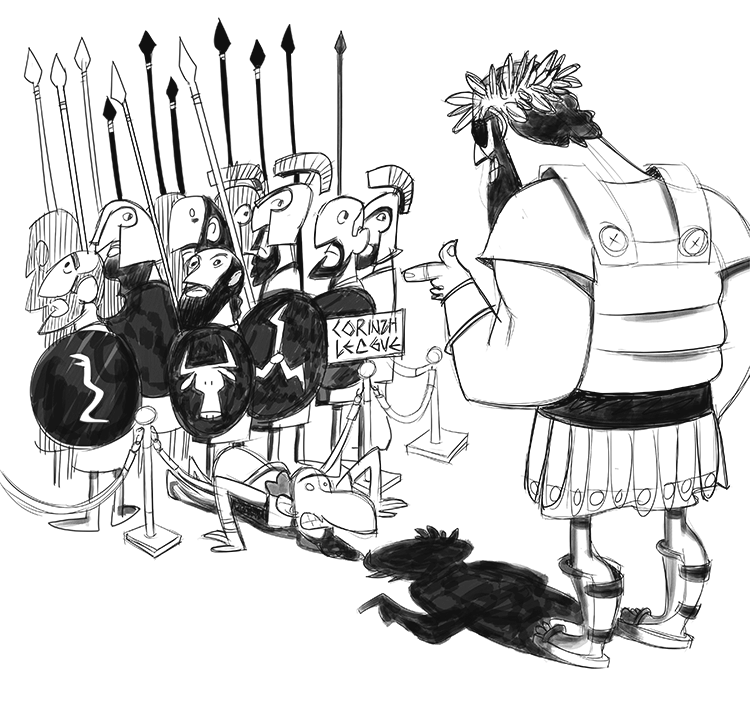
Conquering Greece
Using his power as king, Philip mined gold and silver to finance a massive army, as well as the first Macedonian navy, and then marched south towards mainland Greece. There he engaged with and beat both Athens and Thebes at the Battle of Chaeronea.
By winning this battle, he effectively conquered most of Greece. At the time, Thebes was the most powerful city-state in Greece. Beating Athens was just extra.
From there, he established the League of Corinth, which was a federation of all Greek city-states. Though it was far from a democracy — Philip was its primary leader, as well as its commander-in-chief. Oh, and membership wasn’t voluntary. If you defected, Philip would send his army to destroy you.
The formation of the League of Corinth is the first example of unification in ancient Greek history.
Once he finished this, Philip’s plan was to invade Persia. But his ambitions were cut short in 336 BC when he was assassinated by one of his bodyguards while at his daughter’s wedding.
In addition to being a major bummer for all the people attending what should have been a joyous affair, this also paved the way for Philip’s son, Alexander, to take the Macedonian throne and change history forever.
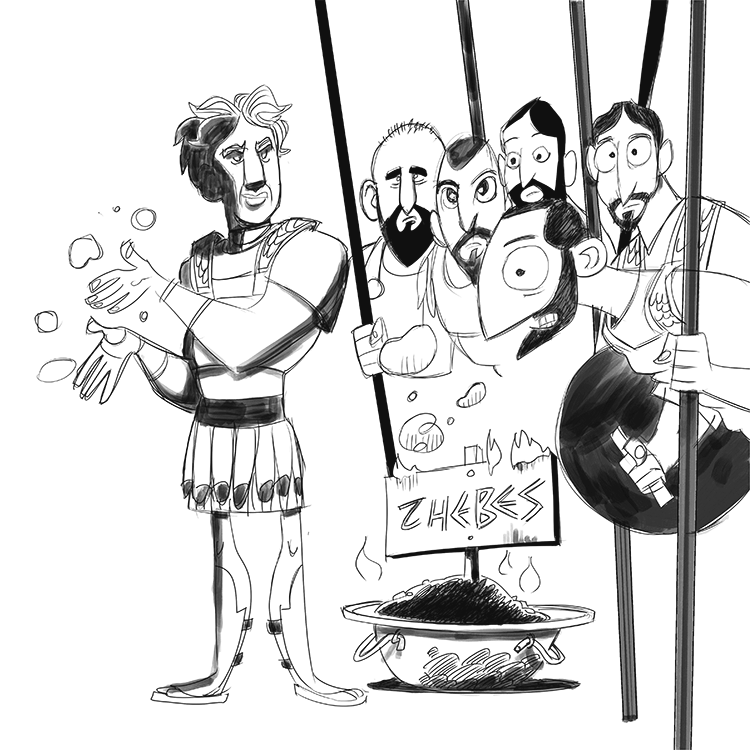
Alexander Takes the Throne
Upon Philip’s death, his son, Alexander, took the throne. At the time, he was just 20-years-old. Talk about growing up fast.
His first order of business was to consolidate his rule. Though Philip’s assasination didn’t throw the kingdom into turmoil, there were several rebellions in Northern Greece Alexander had to quell to make his claim to the throne legitimate.
Then he had to deal with the rest of Greece. Never really thrilled with being subjugated by Macedon in the first place, many saw this as an opportunity to break free. However, when Alexander burned Thebes, the most powerful Greek city-state at the time, to the ground, this pretty much ended all hope of breaking free from Macedon.
Once he’d secured his rule in Greece, Alexander turned to finish what his father started.
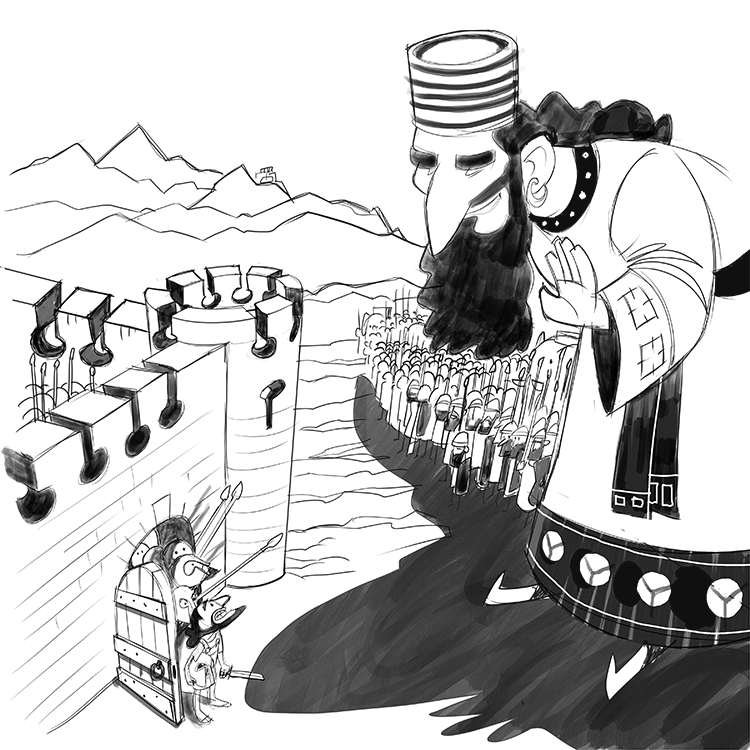
Conquering Egypt and Persia
The Macedonian kings, both Philip and Alexander, saw Persia as the primary target. It was Persia that had been harassing and subjugating the Greeks for decades, and so it was Persia that had to pay. However, since it was so big and powerful, lots of other things had to be done first.
To start, Alexander brought his armies into what is now Turkey to conquer and “free” the Ionian Greeks (how free can you be when you’re conquered by someone else?) Still, it had been centuries since the Ionian Greeks had been ruled by someone who actually spoke Greek, so this may have been a welcome change of pace.
He did all of this in his first year as king. Talk about being busy.
From there, he moved south and throughout 333-332 BC he brought most of the Levant and Syria under his control, with the decisive Battle of Issus serving to assert his power.
In that same year, 332 BC, he also won the Battle of Tyre, which brought Phoenicia into the Macedonian realm. And then, to top it off, he crossed into Egypt and conquered that too!
Alexander was welcomed into Egypt as a liberator, for the Egyptians were tired of living under Persian rule.
At this point, Alexander took a very brief break. He founded a new city — Alexandria — which he claimed would be the capital of his new empire. He would go on to found about twelve different Alexandria’s, but the Egyptian one would become far and away the biggest and most significant.
In addition, Alexander took steps to get in good with the locals, mainly declaring himself the son of Zeus-Ammon. This was a combo-god created from the two most important deities in each culture and that had a significant following in Egypt at the time. Good move, Alexander, good move.
All in all, conquering all this territory put Alexander in an excellent position to invade Persia. Not only did he significantly reduce the size of the Persian empire, but he also gave himself several strategic launching points for his invasion, which would start almost immediately.
Alexander Takes Persia
After stopping to rest for just a few months, Alexander began the next part of his journey: the conquest of Persia.
The fighting began in 331 BC in Babylon and Assyria, which were both in modern-day Iraq, just to the north of the main Persian cities.
Within just two years of launching this invasion, Alexander and his armies defeated the Persian king Darius III and entered Susa and Persepolis, the latter of which was the Persian capital at the time.
Seeing that his time was over, Darius III went on the run and was soon captured and killed.
Alexander instructed his army to loot the city, and in this process, it was burnt to the ground. This may have been an accident, but even if it was, the effect was the same: after nearly 400 years of dominance, the Persian empire was destroyed.
So much success, however, started to go to Alexander’s head. Following Persian tradition, he declared himself a god-king, and he began adapting certain Persian customs, such as making people kiss his hand when they met him.
He also forced many of his generals to marry Persian women, hoping that they would start to create a new Greco-Persian race that would be loyal only to him.
Indian Conquests
After conquering Greece, Egypt, Syria, the Levant, Phoenicia, Assyria, Babylon, and Persia in less than five years, you’d think Alexander would be ready for a break. Nope! He wanted more. So, after just a few months in Persia, he gathered his army and headed east.
As he went, he conquered whoever he passed, until he came into contact with the kingdoms of northern India. There, he won many battles, subjugating kingdoms as far as Punjab. But his grip on power there was loose. The Indian kingdoms he invaded were already rather powerful.
However, his success in the region meant that his empire now stretched from the Mediterranean to the Himalayas. And all this in less than ten years!
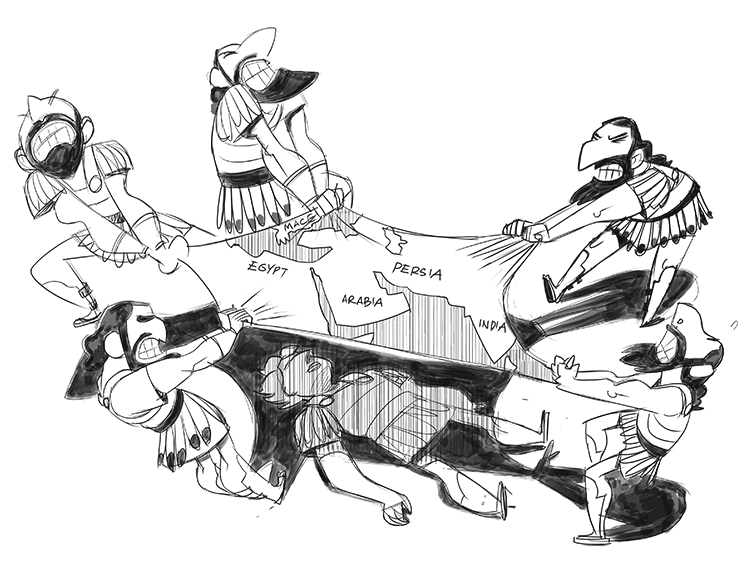
The Death of Alexander the Great
Eventually, Alexander began heading back west. But he would never make it home, for he fell ill and died in Babylon in 323 BC.
It’s possible he was poisoned by one of his generals who didn’t like him (the Macedonians did this often), but it’s also possible he died of malaria, or some other disease he caught in India. To this day, the exact cause of his passing remains a mystery.
However, no matter the reason, Alexander’s sudden death unleashed pure chaos in the ancient world. Persia, the previous superpower, was no more, and now there was a massive power vacuum.
Part of the trouble was that Alexander never stayed long enough in one place to establish an efficient bureaucracy. Instead, he would appoint one of his generals to govern in his place. This meant that when he died, there were lots of people with power left behind, and they didn’t all get along. Not one bit.
Ushering in a New Era of Ancient History
Naturally, this led to war. Lots of war. And the outcome of these conflicts would reshape the ancient world. Eventually, several kingdoms would emerge, all with Greek roots. This encouraged Greek people to travel all over the ancient world, and with them they brought their language, culture, knowledge, and more.
This period of history is known as the Hellenistic Era. It was the precursor to the Roman Empire and a major building block of the modern Western world.
So, while Alexander of Macedon only lived 33 years, in that time he managed to conquer more territory than any other leader before him, founded a new city that would quickly rise to prominence, defeated the Persians, and, in the process, completely reshaped the political landscape of the ancient world.
So if anyone deserves the nickname “the Great,” maybe it is Alexander of Macedon after all?
Written by Matthew Jones
Illustrated by Pablo Velarde Diaz-Pache
